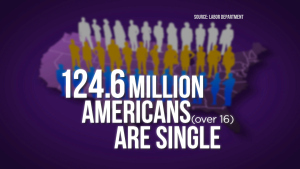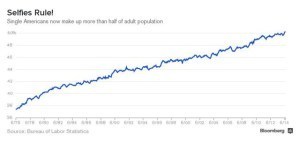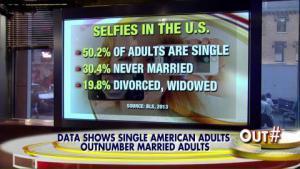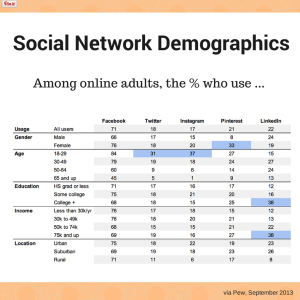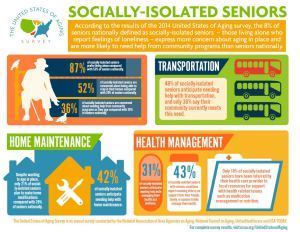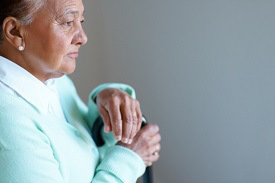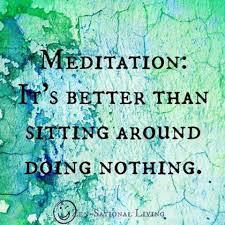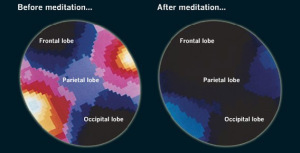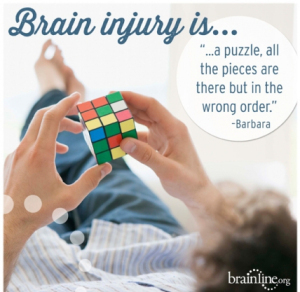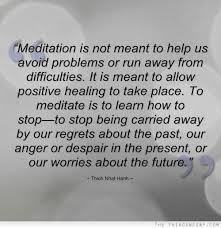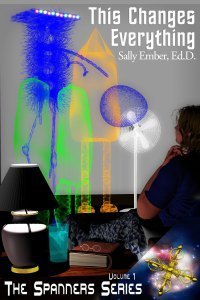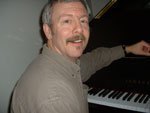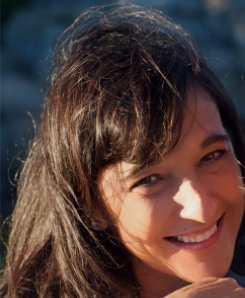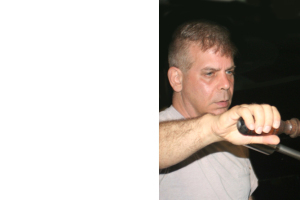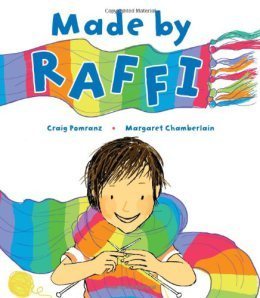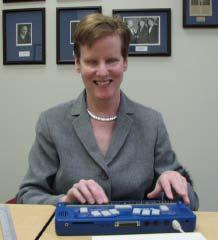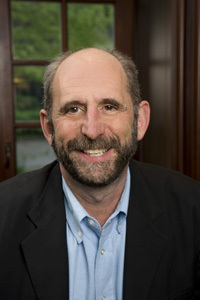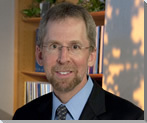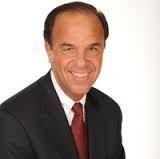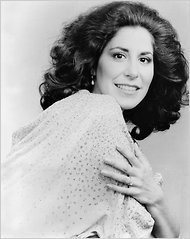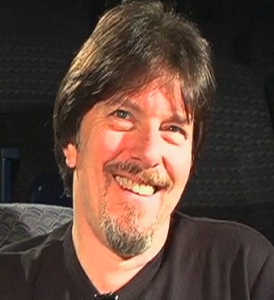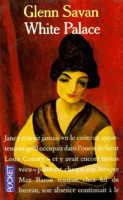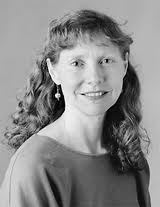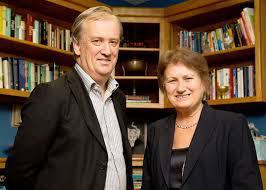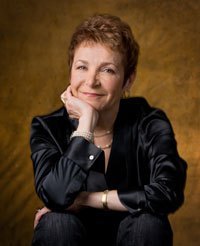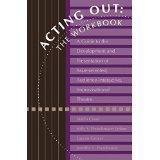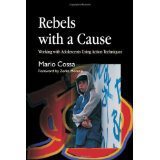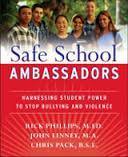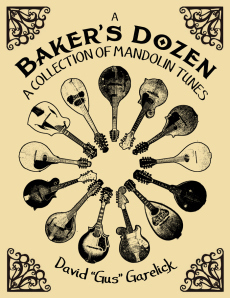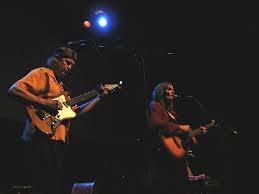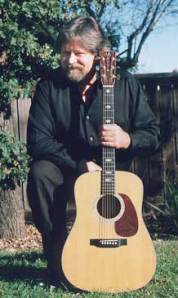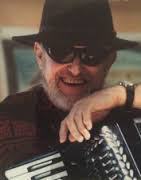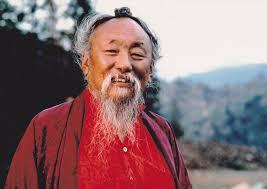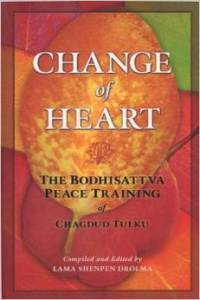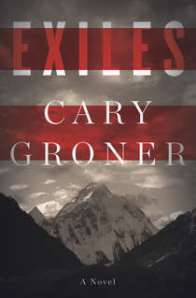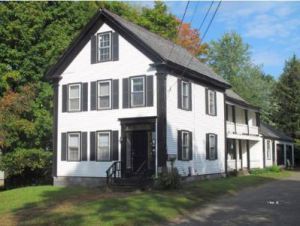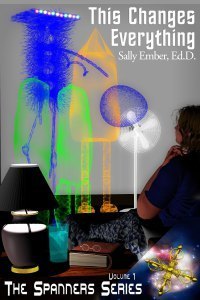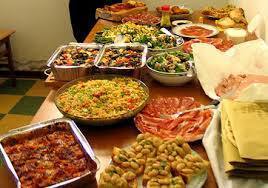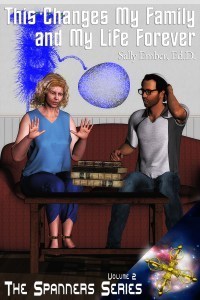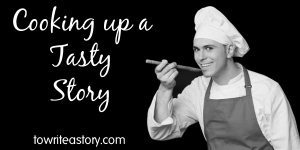Sally Ember's Blog, page 102
September 16, 2014
Roundup: New LGBTQ YA Fiction, Dystopian YA Romance, and Book Clubs
A LOT to like and check out in these lists! Thanks for gathering and posting!
 Originally posted on wrapped up in books:
Originally posted on wrapped up in books:
I haven’t had much time for blogging here, but I thought I’d share what I’ve recently written for other spots around the bookish corners of the internet.
New and Forthcoming LGBTQ YA Fiction at YALSA’s The Hub
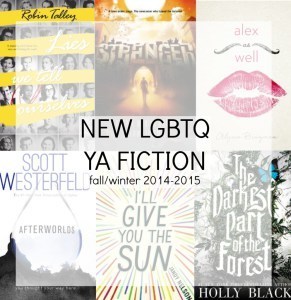
I’m always excited to see more LGBTQ YA, and these are six titles I’m really excited about or have already enjoyed.
Dystopian + Post-Apocalyptic Romance for NoveList’s Readers’ Advisory Newsletters

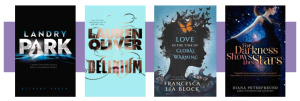
When my editor asked if I’d be willing to write about dystopian romance, I took it as an opportunity to spotlight several titles that are less well known or that I personally enjoyed and think deserve more attention. Even though I’m burnt out on the genre, I still get tons of request for it in my library, and I’m sure I’m not the only one.
Library as Incubator Project’s Book to Art Club: Leviathan by Scott Westerfeld
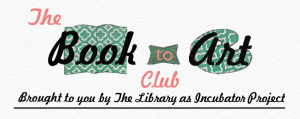
I’m thrilled to be part of one…
View original 67 more words
Filed under: Writing







RECOGNITION TAG
 Originally posted on Grady P Brown - Author:
Originally posted on Grady P Brown - Author:
I received this lovely Recognition Tag from viktoryarch and I pass on the following rules regarding the tag:
The rules are simple: if you read a blogger you enjoy, tag him/ her with a recognition tag, telling them how you appreciate them.
Tag as many as you want. Spread the love of appreciation and recognition. I want to give my recognition to my fellow bloggers who show their impressive posts and inspirational work.
Filed under: Writing







Being #Single vs. Social #Isolation: Benefits and Costs of #Solitude
Headlines and talk show jokes pervaded last week, screaming about the latest research in the USA claiming that being #single is now the “norm” for adults for the first time. What are the benefits and costs of this #solitude? What about increasing social #isolation, especially for #Seniors?
from Bloomberg news, we get these insights and facts:
“Single Americans make up more than half of the adult population for the first time since the government began compiling such statistics in 1976….[That is] 50.2 percent of those who were 16 years or older, according to data used by the Bureau of Labor Statistics in its monthly job-market report.”
image from: http://www.nbcnews.com
More specifically: “The percentage of adult Americans who have never married has risen to 30.4 percent from 22.1 percent in 1976, while the proportion that are divorced, separated or widowed increased to 19.8 percent from 15.3 percent…”
Among other results of this change, “this exaggerates income inequality…” This worries and affects me and should concern us all in the USA. When so many for so long are un- or under-employed, living on fixed incomes that are unable to cover necessities and bills, we are ALL living in economically unstable situations and we ALL pay.
image from: http://www.bloomberg.com
For their full article:
http://www.bloomberg.com/news/2014-09-09/single-americans-now-comprise-more-than-half-the-u-s-population.html
From another source, we get these “spins” on the topic: http://www.feelguide.com/2014/09/11/the-united-states-of-bachelors-single-people-now-make-up-more-than-50-of-u-s-adult-population/
“The United States Of Bachelors: Single People Now Make Up More Than 50% Of U.S. Adult Population” and “…there’s new research which indicates that being single can have enormous benefits on your wellbeing.”
image from: http://foxnewsinsider.com
Clicking on that link brings us to this headline and the real link for its list. http://www.feelguide.com/2014/02/17/the-top-5-scientific-reasons-why-being-single-is-good-for-your-mind-body-and-spirit/
“The Top 5 Scientific Reasons Why Being Single Is Good For Your Mind, Body, And Spirit” [with its own sources for each of the points in the article; link below this list, here]:
1. Healthier Heart: “…rates of heart disease were lowest among those who had never been married. The difference between those who had been married the whole time and those who had been single the whole time was not significant, but those who were ‘remarried,’ “divorced,’ and ‘widowed’ — all statuses that can come from getting hitched — were significantly worse off.”
2. Fitter Body: “…the ones who had never been married exercised more each week than those who were either married or divorced.”
3. Stronger and more Diverse Social Network: “…’married people are less likely than single people to help, support, visit, and maintain contact with friends, family, and neighbors’…The same is true for partners who are unmarried but living together…. once people get married, they have less contact with their siblings….Single people…may have more emotional energy to share with friends, siblings, parents — and themselves.”
4. “No Settling“: “People who can embrace being single are less likely to end up settling for unhappy partnerships, feeling stuck and unfulfilled.”
5. Enjoy the Benefits of Solitude: “…[T]he solo state has been linked to ‘freedom, creativity, intimacy, and spirituality.’ Singles — especially those who live alone — may have more time for solitude and its many psychological benefits.”
http://www.businessinsider.com/why-its-better-to-be-single-2014-2
One of the correlations to being single, and in my and others’ opinions, a chief reason that being single is more popular, feasible and enjoyable now than ever? The use of social networking sites, especially via internet accessing devices such as phones and tablets, is higher than ever and rising among adults in the USA. Can’t be a coincidence.
image from: http://www.linkedmediagroup.com
I am astonished by these stats, which are the highest for FACEBOOK: 76% of adult females and 66% of males online use Facebook! In the age group of 30 – 49, that total is 79%! Even in rural and suburban areas, that figure stays around 70% and higher. In older age groups, that percentage is still quite high: among those ages 50 – 64, 60% are using it, with 45% of Seniors using Facebook.
There has been a meme going around that shows various faces or graphics with these words: “I just spent the day on Facebook instead of being with people” or words to that effect. Truer than ever, now, for most adults, it seems.
Singlehood may be beneficial for many, especially women (many research studies have pointed this out repeatedly in recent years) but social isolation is not beneficial and is increasing, with extremely negative results for Seniors (mostly women) in the USA.
image from: http://nassembly.com
Being alone does not equal being lonely. Being single does not equate with being unhappy. Okay. Got that. I and many others could fill many blog posts with personal stories of poor relationships’ escape stories, relief at being single, joy in alone time, happiness while on our own.
I have been saying for years that my “chooser” must be broken and therefore, I’m finished with choosing an intimate partner and happier being on my own than in another wrong relationship. If a suitable partner finds me, that might work. But my being the chooser? not going to happen again. I therefore firmly agree with the “not settling” part, above, for myself.
In a major life change spurred by many factors (personal, economic, familial), currently, as many of you know, my mother and I started sharing her condo a few weeks ago. This takes care of many of both of our social and other interpersonal needs just fine. We have our own time and our together time. We help each other and we leave each other to our own devices. We are fortunate to have rhythms and personalities that mesh well.
But, there are actual social and other needs for many adults in the USA that require interaction and assistance from live humans that are largely going unmet, especially for Senior women. What are we as a nation going to do about this? Comments and suggestions, here, please.
image from: http://www.goodtherapy.org
Filed under: Life lessons, Opinions, Social Media, Statistics Tagged: adults, Divorced, Isolation, Never married, Seniors, Single, social media, Solitude, Widowed







September 12, 2014
#Injuries to the #Mind, #Brain and #Psyche that Cause Difficulties with #Meditation
I have been noticing, since the fall that injured my brain via a #concussion in early April, that I have had unusual and unique (to me) difficulties with meditation (and life) ever since. Add to this several other “injuries” to my mind and psyche due to: disastrous #heartbreak; a difficult #move cross-country (i.e., getting rid of almost everything, going far away from my spiritual/ meditation teacher and spiritual community/ sangha to relocate to my childhood hometown); long-term, chronic #unemployment; disappointing #ebook sales (due to my having been incapacitated during key #marketing time after my accident); unexpected and painful changes to my #health; turning 60, which have led to my noticing many other problems with my #meditation practice in the last several months that I’ve never had before this (I’ve been meditating since 1972 and doing this practice since 1999).
I think, under these circumstances, which would put me over the top on any stressors test, I am doing quite well. However, I want to meditate, not just do well. Why does my mind keep skittering away from my focus when I try to meditate? What is happening in this brain/mind of mine? I have done many retreats, some as long as eleven weeks, and never had anything like these problems before. My talks with other meditators without brain injuries confirmed that only we injured seem to have these types of difficulties.
But, why? And, what to do about them?
I kept hearing this quote as I continued my attempts:
I pray that this is true….
Since I am a life-long researcher and the internet provides endless opportunities for me to look for “answers,” I looked around for others’ stories, cautionary tales or suggestions. I wanted to find more injured meditators I could commiserate with or teachers who could offer me advice.
What did I find? See below.
Not surprisingly, when I looked for links between “stress” and “meditation,” I found millions of links (17,700,000) referring to the help that meditation provides us when we’re stressed. Meditation for stress reduction, managing stress, alleviating stress, etc., abound on the internet and elsewhere.
NOT ONE article or study to be found that discusses how stress impacts meditation. Really? Really.
Here was my “path”:
“Searches related to meditation problems life stressors” which then provided these other key word strings:
meditation for stress
meditation for stress relief
guided meditation for stress
meditation for stress and anxiety
meditation for stress management
meditation depression
meditation for stress or sudden shock
meditation for stress and anger
image from: http://www.paramyogaindia.wordpress.com
I also tried: “Searches related to impact of stress on meditation,” which yielded about 6 million results, but always in the reverse: how meditation helps with stress.
Okay. I must be going about this all wrong. I tried the verbal “OKAY GOOGLE” command and asked: “OKAY GOOGLE: Why am I having trouble meditating?”
I got 1,020,000 results, but these all revolved around problems “beginners” have with “monkey-mind,” or problems many have with setting aside time, being consistent, staying with meditation once they start, etc. I couldn’t look at all one million results, but the associated key word strings confirmed my suspicions: OKAY GOOGLE still did not understand my problem.
Google did offer other choices (some quite hilarious, under the circumstances):
“Searches related to why am I having trouble meditating”:
i am having trouble pooping
i am having trouble getting pregnant
i am having trouble sleeping at night
i am having trouble breathing
i am having trouble breathing and my chest hurts
i am having trouble swallowing
i am having trouble breathing deeply
i am having trouble logging into my facebook account
I even tried getting more specific with OKAY GOOGLE, asking: “Why does my concussion make it hard for me to meditate?” This query led me to even stranger associations than before, including recommendations for those with concussions to meditate to help heal from their concussions.
Huh?
I don’t know whether to be flattered or to cry when this also had my own article from my blog post in May as the number 3 listing among 11,000,000 results: concussion | Sally Ember, Ed.D. sallyember.com/tag/concussion/ May 2, 2014
If I’m one of the “experts,” here, we’re all in trouble.
image from http:///funny-pictures.picphotos.net
So, I was going to give up on finding “help” but then I tried this search string: “research meditation frontal lobe injuries” and hit the jackpot.
First, this quote (unattributed) kept appearing: “Meditation is a frontal lobe activity,” which affected me deeply. My accident, for those who don’t know, involved my hitting a wall face-first, breaking my nose and impacting my forehead, behind which is the frontal lobe.
Here are some selected quotes from the best article I found, from the UK, that clarifies a lot about the functions of the frontal lobe, its effects on and participation in the activity of meditation, and many other aspects of my experience: very illuminating and helpful.
Case study on function of the frontal lobe
“The frontal lobes play a major role in the regulation of our emotions and behaviour as well as planning, decision making, social conduct, and executive functions. They are vulnerable to damage… [and] are thought to be our emotional control centre [sic; UK spelling] and home to our personality.”
“The frontal lobes are vulnerable to injury and damage due to their location at the front of the skull and their ample size. Magnetic Resonance Imaging studies have revealed that the frontal area is the most frequent region of damage following brain injury (Levin et al., 1987). Statistics show that there is no other component of the brain in which impairment can cause such a wide array of symptoms (Kolb and Wishaw, 1990).”
This began to intrigue me, especially the part about the “wide array of symptoms,” which I can attest to experiencing. Some of my “symptoms” have seemed to be unclearly connected to the concussion until I read more of this article.
“The frontal lobes are involved in problem solving, spontaneity, memory, language, initiation, judgement [sic; UK spelling], impulse control, social cognition (Benson, 1996) and sexual behaviour. Motor function is also seen to be controlled by the frontal lobes (Leonard et al., 1988).”
I have noticed my balance is off, my proprioceptors are off, my sense of security on my feet is reduced, but until I read this, I wasn’t sure if I was suffering from a bit of PTSD and wariness about falling again or actually having trouble. The latter, I believe now, is the case.
“Broca’s Aphasia has also been linked with frontal lobe damage (Brown, 1972). It is supported that frontal lobe damage has an effect on memory and attention (Stuss et al., 1985).”
Ding ding ding: points for all. Unfortunately.
“Mesulam (1986) pointed out from his studies, that some people who have suffered frontal lobe damage show impairments in their everyday life; however they show little or no impairment on clinical neurological assessment tests….[One injured patient was] unable to make decisions and plan…often unable to make simple everyday decisions, such as which toothpaste to buy, what restaurant to go to, or what to wear even after endless comparisons and contrasts Damasio (1985)….This may be characterised as a failure of future memory, the ability to encode delayed intentions, and act on those intentions when the appropriate time arrives.”
Usually I am extremely decisive. Even when there are complex factors, even when I feel ambivalence: before this accident and its injuries to my brain, I was considered a person others could rely on to make the choices they could or would not make. Since then, I have had hesitation, confusion, bewilderment, inability to weigh costs and benefits and many other unusual reactions to being asked to choose even the simplest things. Now I know the reasons for this befuddlement. Good.
“Interestingly, some patients who suffer from frontal lobe damage often do not show any defects on neuropsychological tests. However, when observed in unstructured real world settings, patients frequently demonstrate cognitive difficulties, neurobehavioral symptoms, and deficits in their executive functions.”
I would say, without a doubt, that the most severe deficit to my executive functions has been first my complete inability and then my reduced ability to meditate, since meditation has become the foundation for all the thinking, choosing and behaving in my life via values, personality and habit changes.
image from: http://www.brainline.org
I can see ways I’ve regressed since the accident and these are disturbing in deep and superficial ways. I’m more impatient, more quick to anger, easily provoked to sadness or hurt. I hide it from those close to me but take it out on customer service representatives of mega-corporations which happen to provide terrible service. Not proud of this at all.
“Studies have found high frontal lobe activation during meditation (Herzog et al, 1990; Lazer et al, 2000).”
IF I COULD MEDITATE, I would, also. I miss meditating so much. But, now I know a bit more about the reasons for my difficulties.
I hope this post and the rest of this article (link, below) help others in similar predicaments.
Keep trying, keep going: got to believe it will improve.
I’m also going to see if I can talk (or video chat) with my meditation teacher some time soon. I need something.
A quote from Thich Nhat Hanh is what I plan to contemplate until my meditation practice gets back on track.
Filed under: Buddhism, Life lessons, Meditation, Personal stories, Tibetan Vajrayana Nyingma Tagged: brain injury, Buddhist, concussion, frontal lobe, injuries, meditating, meditation, mind, moving, psyche, Tibetan Buddhism, Vajrayana







September 10, 2014
“Mrs. G” Reviewed This Changes Everything, Volume I, The Spanners Series
An open letter to a reviewer:
Thanks, Mrs. G., for your thoughtful review of This Changes Everything, Volume I, The Spanners Series, on Amazon. I appreciate your candor, your thoroughness and your specificity of what you liked and what didn’t work for you. I wish all readers and reviewers took the time and gave the attention to their reviewed books and reviews as you have!
I am sorry the linked Table of Contents didn’t work for you. What version of ereader are you using? I haven’t heard of that problem from other readers and I wish that hadn’t happened for you.
Thanks, again, for your considered review. I would be happy to send you a copy of Volume II, This Changes My Family and My Life Forever.
Best to you,
Sally Ember, Ed.D. (author)
http://www.sallyember.com
P.S. I agree that The Spanners Series‘ stories would make an excellent T.V. series! I hope your wish comes true!
Here are her review and a link to it:
* * * of 5: Great concept–difficult translation into written form. September 6, 2014
DO NOT read this if you want a normal, linear story that makes complete sense and introduces ideas in a logical sequence.
DO read this if you want to try something very new and think about the universe in a completely different way.
I’m actually not even sure how to review this in a traditional way because the book was so very bizarre in its format. Let’s go with this…
What I liked:
The aliens and the whole concept of the multiverses working together to make life better.
The characters (a lot of them) and how they felt real.
The whole idea of alternate time lines–something I’ve loved since Isaac Asimov’s “The End of Eternity”.
The enormous attention to detail in the whole world-building thing.
What irked me:
The fact that shortly after meeting the aliens, we are thrust into the future (or is it a flashback–that’s how hard this is to follow) and a ton of acronyms and entities are suddenly taken for granted. There is an “appendix” with a glossary of terms. That might have worked for me except that in the ebook format at least, that meant jumping to the end and then there was no way to navigate back (no table of contents to take me back to the chapter I’d left). Perhaps in paperback form where I could dog ear the pages…?
As other reviewers have mentioned, the whole matter of tense and the writing style that makes it hard to know *when* I am. Which, yeah… Is a little moot when we’re talking about alternative timelines and the fact that time is not linear. Yeah, I get it. But the readers still are used to linear, so we need to have it explained to us in that way.
I really think this would work better as a TV series where the visual clues might make it easier to tell “when” the reader is reading. It vaguely reminded me of Cloud Atlas, but harder to follow.
Filed under: Reviews, The Spanners, This Changes Everything, Volume I of The Spanners Tagged: aliens, alternate timelines, Book Review, ebook, multiverse, The Spanners Series, This Changes Everything, Volume I







September 8, 2014
How I Benefit from the Celebrities I Grew Up /Worked with and Still Do
How many famous and important people do you actually know (besides yourself, of course)? How does this benefit you?
Do I know more than you, or more than most? I’m in the mood to brag, by association, about having such amazing friends and former associates and colleagues. I also want to share how knowing these extraordinary people benefits me.
Some definitions seem helpful, here.
By “grew up/worked with” I mean: I KNOW/KNEW these people. We ate together, went to school or camp together, swam or canoed together, were friends/colleagues for more than a few minutes (some I’m still connected to strongly; several were lovers). Not only would I claim them, but they all know and remember me well.
By “celebrities,” I mean that these are people who have:
been on the covers of national magazines and/or featured speakers/presenters at national/international events/conferences;
won national or international awards or positions of great importance;
invented/started something significant;
wrote/starred in/produced something significant in the way of art/music/books/movies/plays;
achieved a high level of renown in their chosen field;
are known by many others as “great” in their field;
been stars of series TV shows and/or featured on popular talk shows;
are known by and hang out with other celebrities.
(in no particular order)
From Ladue Schools in St. Louis, MO (apparently, a disproportionate number of important contributors to society, culture, science and justice are graduates from my well-known and -regarded Horton Watkins Ladue High School, not just the ones I list, below):
Dr. Jonathan D. Fleischmann, M.D. My older brother is a urological oncologist who has patented surgical techniques, medications and other treatments as well has being the mentor/teacher for many other surgeons/researchers in these areas. Our mother lost a kidney to cancer in the 1960s and is fortunately still alive today.
D. Scott Bassinson, J.D., one of my first serious boyfriends and long-time friend, is an Attorney who has argued at the USA Supreme Court, now a Judge and always, a Musician/Composer. It is due to Scott and his brother, Kevin (also a celebrity)’s resignations that I became Ladue High School’s rehearsal and performance accompanist and a professional accompanist for musicals, choruses and performances.
Karen S. Raskin Kleiman, MSW, author of several books, founder of the Postpartum Stress Center, and leading researcher in Postpartum Depression and its treatments (featured on many TV talk shows, including OPRAH, in magazines and websites).
Rich Rubin, journalist, playwright, Founder/Producing/Artistic Director, Quince Productions and GayFest! (Philadelphia), was my first piano-playing duet partner under Deborah Rosenblum in the early 1960s, and we graduated from Ladue together in 1972.
Craig Pomranz, singer, recording artist, live cabaret performer, children’s book author, was another one of my high school “more than friends” that I’m still in touch with and regard highly.
Dr. Alice Conway, J.D., Ph.D., attorney and philanthropist, blind since aged three, first blind Board Chair of the The St. Louis Society for the Blind and Visually Impaired. Alice and I had many classes together in junior and senior high school.
Dr. Michael Green, M.D., Ph.D., Professor at UMASS Medical Center in Gene Function and Expression, the recipient of the Searle Scholar Award, the Presidential Young Investigators Award, and the McKnight Neuroscience Award and Investigator of the Howard Hughes Medical Institute. Michael was my second serious high school boyfriend and I went to the first college I attended partly because he was there (sorry, feminists). I knew his little brother, Eric, as well (see below).
Dr. Eric Green, M.D., Ph.D., director of the National Human Genome Research Institute, recipient of numerous awards and author of many scholarly articles.
Joel Meyers, longtime sports broadcaster (currently play-by-play announcer of the New Orleans Pelicans of the National Basketball Association). Joel and I went to school together from Kindergarten through high school, but we weren’t exactly friends.
Frances Ginsberg, Opera Singer (deceased) with the New York City and Spanish operas before her death several years ago sang in our high school’s Chorale and musicals. I accompanied her solos.
Want to see more about some of these Ladue alums and more? In 2012 (the year of my 40th high school reunion), Ladue held its 60th “Distinguished Alumni” Awards Ceremony and it is on YouTube: http://bit.ly/10vTEaP
From Camp Hawthorn (the St. Louis Jewish Community Center Association’s Missouri Ozarks overnight camp, until 1969):
Sheldon Mirowitz (also from Ladue Schools), soloist musician, producer/arranger and sideman, professor at Berklee College of Music in Boston, film and TV composer, winner of awards at the Sundance Film Festival and other accolades for his music,including three Emmy nominations and one Peabody Award. I met Sheldon in 8th grade at camp and then we we re-met in high school and have been friends ever since.
Chuck Blitz, became independently wealthy in the first dot.com boom and turned that to opportunities to be a philanthropist, environmentalist, social/environmental activist, particularly in the Santa Barbara, CA, area, and with Ram Dass and the White Lotus Foundation (ecological, social community and world service (SEVA) programs and yoga teacher training). I went to camp with Chuck; his sister, Judy (“Jay”) was my first counselor, but he and Glenn Savan were/are my brother, Jon’s, age, so we weren’t really friends.
Glenn Savan, (deceased in 2002), author of White Palace, a semi-autobiographical novel turned into the film in 1987, starring James Spader in Glenn’s role and Susan Sarandon as the love interest, using the local “White Castle” hamburger joints as the setting. I knew Glenn from camp, but we weren’t exactly friends.
Colleges and New England living (University of Wisconsin/Madison and University of Bridgeport/Connecticut (undergrad) and University of Massachusetts/Amherst (graduate)
Dr. Hans van der Giessen, Ph.D., Provost and Vice-President for Academic Affairs for and Political Science Professor at the Univ. of Bridgeport, Hans was a close personal friend for many years. We aren’t still in touch, though.
Dr. Rahima Wade, Ph.D. (deceased, 2012), almost single-handedly brought “service learning” into public schools in the 1990’s. She also introduced me to the idea of returning to school as a parent of young children and we both attended UMASS/Amherst at the same time. I first met her in Keene, NH, since we belonged to several of the same community groups.
Dr. Mary Kalanzis, Ph.D., and Dr. Bill Cope, Ph.D., Professors, authors/researchers in Multicultural Education and Workplace Diversity globally. I met them when Mary came to Keene State College in New Hampshire as a Fulbright Scholar from Australia in 1990-91 with her husband and colleague/co-writer, Bill, and son, Philip. I then traveled with my partner to visit them in Australia in 1996. Mary and Bill are now at the University of Illinois/Champagne, where she is the Dean of the College of Education.
Dr. Sonia Nieto, Ed.D., Dr. Jerri Willett, Ph.D., Dr. Peter Elbow, Ph.D., Dr. Masha Rudman, Ed.D., Dr. Barbara Love, Ed.D., Dr. Maurianne Adams, Ed.D., Dr. Pat Griffin, Ed.D., among others at UMASS/Amherst, when I studied there in the early to mid-1990s. These particular professors taught/advised me and are authors/ researchers/ activists of great renown in their respective fields (Teacher Education, Curriculum Development, Multicultural Education, Second Language Acquisition, Social Justice Education, Writing Education, Lesbian/Gay Studies, Literacy/Children’s Literature). Because of them, I have held positions as an instructor/trainer in various subjects at various colleges/universities and several nonprofits around the USA.
Dr. Caroline Myss, Ph.D., best-selling author, speaker, medical clairvoyant, teacher. I met Caroline in 1983 in New Hampshire and we became close friends, seeing each other almost weekly until she moved to back to Chicago in 1992. Since then, we stayed in touch, sporadically, but she travels internationally and is unusually busy even when she “lands” somewhere. She mentions me and our friendship in several of her books’ dedications/acknowledgements.
Other notables from the Antioch/New England Graduate School in Keene, NH: Faculty members/authors/ researchers, David Sobel, Rick (Youst) van der Poll, and Mario Cossa (who is also a longtime good friend and colleague). Mario, two of our students and I co-authored one book about the program he started that I helped fun for many years in Keene, ACTING OUT,
and I edited Mario’s second book.
Recently, Mario was introduced to some colleagues in Israel as “the most prominent psychodramatist in California.” How exciting!
From Camp Med-O-Lark (in Washington, ME)
Bari K. Willerford, actor in the National Deaf Theatre and star of MathNet children’s TV show on PBS as well as continuing to appear in many other TV series, movies (American Gangster) and TV episodes.
From Community Matters in Sebastopol, CA:
Rick Phillips, M.S. Ed., co-author and co-creator of the Safe School Ambassadors anti-bullying program and book, which I helped edit, write and edit. I worked at CM for almost five years, up to 2010.
From Northern California:
David “Gus” Garelick, musician, composer, conductor, teacher, author/researcher, D.J., founder/artistic director of “The Hot Frittatas,” “The Gravenstein Mandolin Ensemble” (both of these groups have CDs available) and “The Wild Catahoulas,” also plays/has played in many other duos and bands and on many recordings, including with Queen Ida.
David and I are friends (meshpucha, Yiddish for extended family [by blood and not by blood]) who also play music together (he rather well, I rather badly). I posted our last California duets on my YouTube Channel! Have a listen/look when you’re in the mood!
https://www.youtube.com/channel/UCqnZuobf0YTCiP6silDDL2w/feed
David has planned a series of three volumes about mandolin music, including his own and others’ tunes. Here is Volume I:
Allegra Broughton and Sam Page, singers/songwriters, musicians, founders of “Solid Air,” members of “The Wild Catahoulas,” also play/have played in many other duos and bands. Author of a series of books about and original tunes for mandolins, David also writes a column for Fiddler Magazine and is a national, state and regional fiddle champion and often, judge of fiddle contests. Solid Air has many great CDs available.
Don Coffin, singer/songwriter, musician, teacher, former husband and member of Kate Wolf’s band, member of the “The Hot Frittatas,” Don also plays/has played in many other duos and bands. Don taught well-known guitarist, Nina Gerber, when she was first learning guitar.
Dennis Hadley, musician, singer, member of “The Hot Frittatas,” “The Wild Catahoulas,” also plays/has played in many other duos and bands. Legally blind since birth, Dennis is one of the best accordion players and enthusiastic vocalists in northern California.
From Chagdud Gonpa, my Buddhist Community (Sangha):
Our main teacher, deceased in 2002, His Eminence, Chagdud Tulku Rinpoche, was a meditation master, teacher, author and Buddhist scholar. A contemporary of His Holiness the 14th Dalai Lama, Rinpoche studied with him under many of the same teachers and escaped Tibet to India at about the same time as the Dalai Lama. His books are well-known and -regarded, and the Western students he taught and groomed to become teachers before his death are well-known and -regarded as Buddhist meditation masters and teachers in their own rights. Among them are my teachers, Lama Padma Drimed Norbu (known as Lama Drimed) and Lama Padma Shenphen Drolma (known as Lama Shenphen), who are also authors and Buddhist scholars.
Rinpoche’s books are well-known and -regarded, and the Western students he taught and groomed to become teachers before his death are well-known and -regarded as Buddhist meditation masters and teachers in their own rights. Among them are my teachers, Lama Padma Drimed Norbu (known as Lama Drimed) and Lama Padma Shenphen Drolma (known as Lama Shenphen), who are also authors and Buddhist scholars.
Among our sangha members whom I know personally are two authors: Barbara Gates, who wrote a thinly fictionalized novel about her early years at Chagdud Gonpa’s main residential meditation center, Rigdzin Ling, with these and other teachers and sangha members, In the Buddha’s Kitchen; and, photographer/teacher, Cary Groner.
Now, all of these (still living) celebs can brag that they know ME!
Filed under: Personal stories Tagged: authors, Celebrities, connections, doctors, filmmakers, friends, musicians, scientists, teachers







September 4, 2014
Easily Connect with Authors and Readers with these 232 Hashtags!
Fabulous #guide to #hashtags for #authors for #marketing!
 Originally posted on Nicholas C. Rossis:
Originally posted on Nicholas C. Rossis:
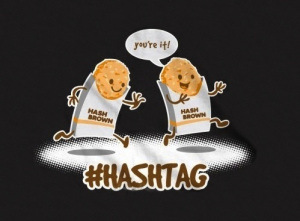
Image: http://jpundits.com/
Leeland Artra recently posted over at the FSFN group on Facebook a link to a list by Book Marketing Services, containing no less than 205 Author Hashtags to use on Google+, Twitter, Facebook etc. In short, you can use these hashtags to easily connect with other authors and/or readers on any social media platform. Since I added a couple of dozens more, they’re now 232!
How to use them
Hashtags are words or acronyms that serve like clusters, by allowing people with common interests to easily search for them. Some are rather esoteric, like #FF meaning #FollowFriday. This is commonly used on Twitter to suggest each Friday the people that have proven supportive in the previous week, therefore others may also benefit from following them.
Other hashtags explain what you’re doing (eg #AmWriting) or what you’re promoting (eg #FreeBook). This list allows you to select the most suitable, therefore effective, hashtag for…
View original 617 more words
Filed under: Writing







Moving back “home” after living elsewhere for over 40 years
What does it mean, exactly, “home”? I left St. Louis County when I went to college. I have visited frequently because many relatives, including my mom, still live here, but have lived elsewhere since 1972.
When I told people I was coming to live here, people asked “How do you feel about moving back home?” How is a place I lived for only seventeen years over forty years ago “home”? It’s not even the same house.
I lived in a house very much like this one, 1959-1972.
I have been peripatetic in my adult life. I lived in Wisconsin (Madison, 1972-74) and Connecticut (several places in and near Bridgeport, 1974-76) during college. I then lived in every other state in New England for twenty-eight more years, from northern Vermont (St. Albans) in 1976 to southeastern Massachusetts (Westport Point) and Rhode Island (Tiverton) in 1977-78, to my longest stint anywhere (20 years) in southwestern New Hampshire, while living more than a dozen places there (New Ipswich, Sharon, Stoddard, Sullivan and East Sullivan, Nelson, then several places in Keene), ending with southwestern Maine (Saco) in 1998. After New England, southwestern New Mexico (Silver City) for 2 1/2 years, then several places in northern California (near San Francisco: two in Santa Rosa, then one each in Sebastopol, El Cerrito, Hayward) for twelve years.
City, country, suburb and small town: I’ve lived in them all. Now, back in St. Louis. Even in St. Louis, the longest I lived in one spot was our family’s house on Old Bonhomme Road (twelve years), which is the same number of years I lived in one collective/family house in Keene (Water Street).
Here is a similar house to the one we lived in on Water Street in Keene for twelve years.
A few times, towards the end of my twelve years in Keene, NH, upon returning from times away I’d feel a sense of coming home as we crossed the city limits’ sign. But, soon after, I moved away from there.
If longevity prevails as the criterion, which of these, then, is “home”?
My mom’s condo is not the “home” I spent my school years in, although this location is “in the neighborhood,” meaning, same school district [LADUE (derived from a French word for those who work for a Duke)]. BTW, LADUE is considered to be one of the best school districts in the USA and in the top 25 of the Midwest. Bragging on that.
Now we live in a condo very much like ones in this building. 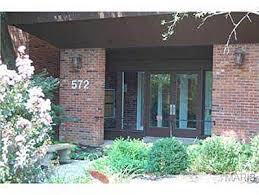
She now lives in CREVE COEUR (meaning “broken heart,” in French), along with many others from the “old neighborhood” (OLIVETTE, meaning “little Olive”). Not a big change, since this is about a ten minutes’ drive from Olivette.
Many of the landmarks, businesses and roads have changed, moved, been eliminated, but there are still some fixtures I recognize after over forty years. The old are populated/interspersed with the new, as everywhere.
The shell of a fast-food place about to be finished (“BIG BOY”) in which I had my first make-out sessions (with Eric) in 6th grade is now a grassy, flat field after having been two different fast-food restaurants. The bowling alley (NELSON BURTON LANES) where I learned to play pinball and to bowl (badly), and behind which I had my first kiss (from Bobby) is still there, but changed owners and names. The elementary school my siblings and I attended (CENTRAL SCHOOL, which we lived almost across the street from and used to treat as our personal playground) became an alternative high school soon after my youngest sibling went to junior high school.
What makes a place feel like “home”? Here is my test: How does it feel to return after I have been away? Does it seem that I am visiting or coming back?
For about twenty-five years, I considered Boston/Cambridge my hub. I had friends who went to college and then lived there. I took classes, saw clients, attended meetings, visited friends and went to events there often. Logan was the airport we used most often until Hartford’s and then Manchester’s grew. Beantown was the BIG CITY we would go to for those experiences. Cambridge was the intellectual/artsy center of existence. I also went to New York City from New Hampshire, but not as often or as easily (it was more than twice as far by car).
Whenever we’d drive to Boston, as our car crested the first hill that would give us a view of “The Pru” and the John Hancock buildings, my heart would lift. Exciting things happened here.
The “Pru” and the John Hancock buildings in Boston.
I walked all around both Boston and Cambridge, had several lovers in and around there, used the T (subways/trains) and frequented cafes. I loved going there for many years. But, Boston was never “home.”
Flying or driving into St. Louis, I would look for the Arch as the landmark. But, seeing it, I never felt “Oh. Now I’m home.”
But, here, unlike many places I’ve lived since I left Keene, NH, I am recognized. After being “invisible” for about fifteen years, it is startling to be called out in public. Last week, while perusing the deli section at Whole Foods, “Sally Fleischmann!” reached my ears. A seemingly strange man called out to me, in surprise at seeing me; a classmate from my high school saw and knew me after not having seen me for many years. I went to a friend’s father’s funeral/shiva and many people there recognized me, called out my name, knew my father. I exercise at the local Jewish Community Center’s building and often know people there or they know me or knew my dad or know my mom or siblings. Does being known or recognized make one feel at home?
Maybe it’s that I just moved back to St. Louis about two weeks ago and I haven’t completely unpacked. I have had visits that lasted over a month here before this, living out of suitcases and drawers as I do now.
I think, as I told one friend, recently, once I pass the five-week mark (and I plan to be completely unpacked by then), I could realize that I now am not visiting and actually live here.
How much longer will it take to feel like “home”? Ask me in 2027.
Filed under: Gratitude, Life lessons, Personal stories Tagged: aging, Buddhist, Doris Lessing, Emotions, home, Jewish, parents, roots, Seasons







September 2, 2014
Book Sales are like PotLucks: You Don’t Know Who Appreciates Your Creation
Authors and potluck cooks have a lot in common. I’ve been giving this a lot of thought lately, especially since I set Volume I of The Spanners Series, This Changes Everything, as permanently free.
http://www.amazon.com/dp/B00HFELTG8
How does any author know who actually reads our ebooks, much less appreciates them, as opposed to going by assessments based on the raw numbers of how many people now have it on their ereaders? Do sales figures really equal popularity and does popularity actually correlate to appreciation? How could we possibly know that?
image from: http://1000awesomethings.com
I, as a cook, would bring a homemade dish to a potluck feeling a mixture of pride, anxiety and hope, my mind brimming with questions as I lay my dish on the table: Will anyone take any? Is it pretty enough? Does it taste good enough? Who will like it? What if there are others similar to mine, but theirs are taken while mine is left mostly untouched?
image from: http://www.allfreecasserolerecipes.com
This Changes Everything now has about 2000 combined sales and free downloads since its release in December, 2013. However, it only has a dozen or so reviews (mostly positive, especially by those who actually read the entire book!). Unfortunately, sales/downloads and positive reviews of Volume I do not seem to be leading to sales or reviews of Volume II, This Changes My Family and My Life Forever, which released for $3.99 in early June (after selling in pre-orders for half-price for two months).
http://www.amazon.com/dp/B00KU5Q7KC
People at a potluck line up to look at the food offered in casserole dishes, baskets, pans and plates. Rarely does anyone list ingredients or even names of the food/dish, so it’s all a guessing game. Hungry, we ask: What is it? What is in it? Will I like this? Will it taste good along with the other things I’m taking?
Furthermore, knowing that the cook will rarely, if ever, know what I think of his/her contribution, I can safely leave it on my plate after one taste if I do not like it. Likewise, readers who download ebooks never have to report to anyone, much less an author, whether or not they even looked at the ebook, much less offer their opinions after reading an entire book.
The remains of potluck dishes’ portions taken and not eaten are not evaluated: they are invisibly trashed. Similarly, ebooks on ereaders can be stories that the owner never reads or only glances at, but the author will never know. Readers may like the ebook, even love it—eat it all up (I’m liking this metaphor) and even share it, rave about it to friends—if we’re lucky, they’ll review it. Or, readers, like potluck eaters, may feel any of a dozen ways about what they take in but never say a word to anyone about their reactions.
Yes: I’d very much like to sell a lot more books, but even more importantly, I’d like to have a lot more reviews, enjoy the positive comments, interactions and feedback from happy readers, be certain that at least some owners of my ebooks are glad to be in possession of my creations.
I “cooked” for you: I want to know if you tasted my concoction. How much of it did you ingest? Tell me what you think of it. Will you come back for more “food” from this “cook”?
image from: http://www.towriteastory.com
A plea to readers
If you like a book, PLEASE respond to what you read. Put comments on Goodreads, rate/rank the books, post reviews on book sales sites (Amazon, nook, iBooks, Kobo) or Shelfari, BookLikes, etc. We authors (cooks) will be forever grateful to hear your opinions, even if you don’t like what we create. You help us become better “cooks.”
THANKS!
Filed under: Indie or Self-Publishing, Opinions Tagged: authors, book marketing, Book sales, ebooks, free downloads, marketing, reviews, sales figures







August 31, 2014
Call for Submissions!
Feminist authors and artists! New submission opps!
 Originally posted on Bluestockings Magazine :
Originally posted on Bluestockings Magazine :
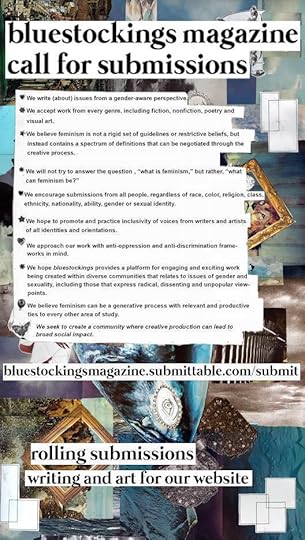
Filed under: Writing









